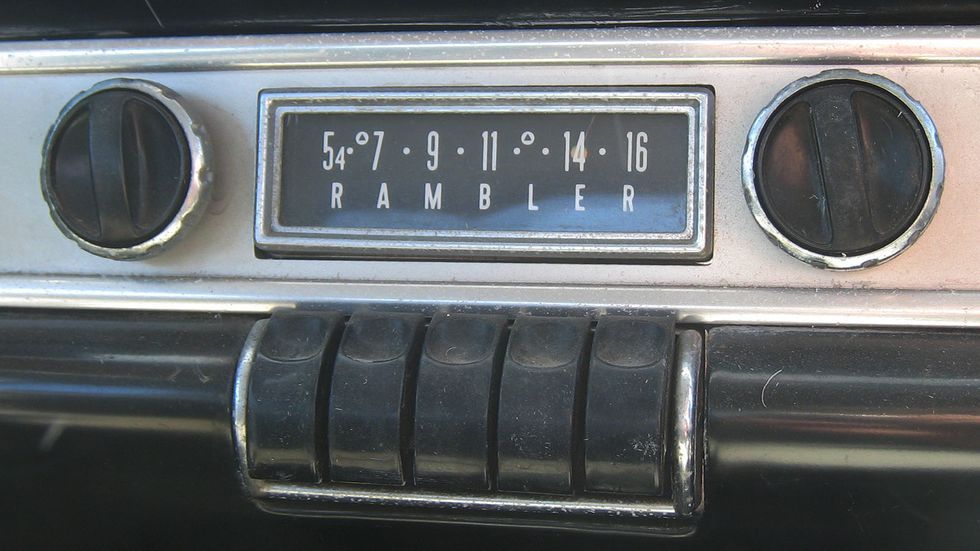Don't Shoot the Message
November 30, 2022
You know when you’re standing in line at your favorite coffee shop, and the person in front of you threatens to pull out all the barista’s facial piercings because the shop ran out of almond milk? That's called shooting the messenger. Taking out your frustrations on the person who delivers the news instead of who or what caused it. In this case, slamming the poor soul who's been pouring lattes since dawn instead of the person whose job it was to order it, or laying the blame on supply chain issues (the pandemic, the war in Ukraine, an Elon Musk tweet), or the almonds who refused to give up their milk. We’ve all done it. To the spouse who delivers the news that the dishwasher, three days out of warranty, just vomited sudsy water all over the kitchen. And, we've all had it done to us. Verbally gutted by a child for telling them the rain washed away a planned day at the park.

There’s another version of this. Where instead of misdirecting anger at the messenger, wrath is leveled at the words themselves. Before the midterms, when the Democrats were preparing for a full shellacking and were looking for somewhere to preemptively point blame, they leveled their crosshairs on their party’s message. Then, after the midterms, when the Republicans failed to pull off the full shellacking, they shot their message. Party leaders, pundits, and columnists on both sides of the partisan fence said the parties chose the wrong words, put them in the incorrect order, made their sentences too long, too short, added too much detail, or didn’t add enough, and failed to create a message that resonated with people.
Anyone who has worked in communications or played a part in creating a message knows how the process works and can imagine what occurred.
Party bigwigs hired the best and the brightest in political messaging and then charged them to “work their magic.” Then, after the wordsmiths crafted a workable and presentable draft, they shared it with the party. In the olden days, these meetings would take place in a drab conference room over bitter coffee and two-day-old bagels slathered in room-temperature cream cheese. Now, these get-togethers probably occurred virtually from attendees' homes, where the bagels might be old, but the coffee was fresh, and the cream cheese chilled. The meeting invites initially went to a small group representing various departments within the party bureaucracy. The group gradually increased as the original invitees forwarded the invitation to others, not because of what they could add to the discussion, but because they wanted strength in numbers to advocate for a position. The group eventually grew from the size of a soccer team to a number that would fill a World Cup stadium.
Then, mimicking the chaos of four-year-olds playing soccer, the group kicked the draft up, down, across, and over the virtual conference room table for hours. The communicators would never tell the party administrators how to organize a campaign headquarters, wire an auditorium for sound, or hire interns. But people whose job originally was to check the message for factual accuracy and policy alignment deemed themselves experts in communication. Some of them because a college psychology professor decades before praised them for a two-page essay on schizophrenia, and others because they have a working knowledge of Microsoft Word. The editing dissolved into tense discussions over comma placement, sentence length, and the insertion of obscure jargon. After the meetings, the editing continued in an endless series of reply-to-all email messages with attached Word documents whose tracked changes and inserted comments resembled the manic ramblings of the schizophrenic who was the subject of their college psych papers.
The communicators then worked their real magic, resurrecting a coherent message from the ashes of the editing bonfire, and submitted it for approval to the party’s decision-makers. The final version resembled the initial draft as much as DaVinci’s, The Last Supper, resembles a kindergartener’s crayon drawing of a horse. Because unless everyone who touched it could recognize at least a smudge of their editing fingerprints, they would damn the document and its contents in enough sidebar communications to ensure it would reach the ears of the approvers, who would then reject it, regardless of its artfulness.
Once the message was approved, the party mouthpieces ran to the microphones and cameras, and the communicators limped away to spend the evening slumped on bar stools downing double vodkas. Swearing they would never subject themselves to another group editing trainwreck, while at the same time scrolling through their messages looking for the next writing assignment.
Even with this Dr. Frankenstein approach to message creation, communication pros usually create something more human than monster. But just as the most talented surgeon can lose a patient, the most creative communicator can butcher a message.
In this case, I don’t think the problem with the Democrats and Republicans is their message because it accurately reflects who they are. Both parties are dominated by extremists who refuse to consider, for even the briefest of moments, the views of others and who label anyone who doesn’t blindly agree with them as demons or heretics determined to ruin the country. Instead of leaders in both parties pausing to think about what they represent, taking the steps necessary to broaden their appeal and approach, and putting the country's needs above misplaced idealism, they appear intent on just hiring different communicators to try and mask who they really are.
Somewhere, more of messaging’s best and brightest are putting down their vodkas to respond to requests for them to work their magic again. Unfortunately, there isn’t enough word wizardry to make the nation’s political party monsters appear human.
Like what you read?
Subscribe to my mailing list and get notifications to your inbox when my next blog post goes live.
Contact Us
More By Joe


